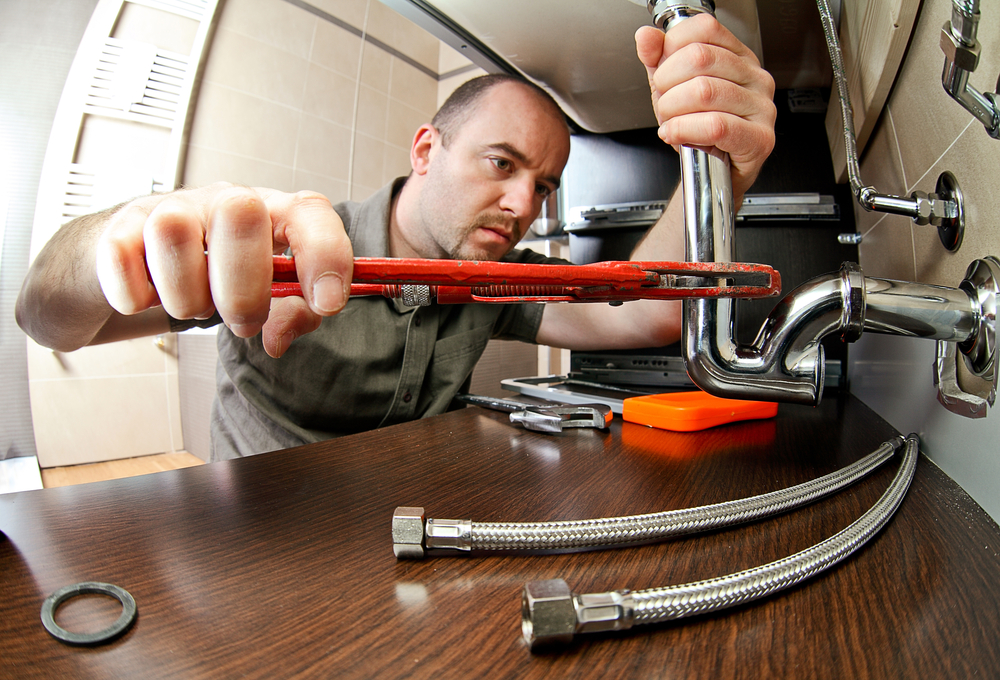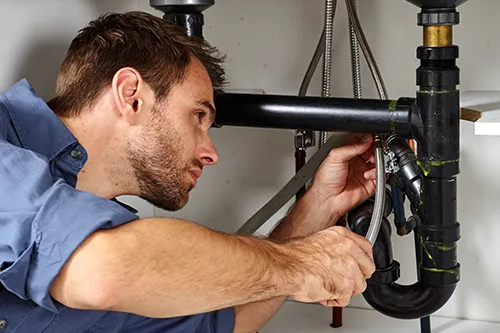6 Reasons Causing The Destruction In Your Plumbing Appliances
6 Reasons Causing The Destruction In Your Plumbing Appliances
Blog Article
What're your insights and beliefs on Leak Detection and Repair Without Destroying Your Home?

The trick to durable appliances, unsurprisingly, is proper maintenance. There's no set policy that can ensure your plumbing appliances a long wear, yet you can prevent unneeded damages and also repairs by preventing bad plumbing habits.
You need to quit doing these 6 points else you'll keep calling your plumber over for minor faults.
Flushing everything
Yes, your commode drain brings about the sewers, yet that doesn't suggest you must dump just anything away. Numerous 'flushable' materials are really terrific obstruction starters, for instance floss. Asides maintaining apparent non-flushable products like cords and plastics out of your bathroom, you must additionally prevent flushing cotton buds, menstruation products, wipes, daipers and also condoms down the commode drain.
Putting grease in the sink
We know properly dealing with oil after a hearty meal is a discomfort. But simply pouring it down the drain can do long-lasting injury to your pipelines. "The fat and also oil can clog your drain terribly adequate to require you to call a plumber," clarifies Dawson. "Plumbing works best when it's well cared for-- not abused with oil."
Making use of too much drain cleaner
Making use of a drain cleaner more than one or two times a month is an indication that something serious is taking place within your pipes. Currently, as opposed to dealing with the major problem, you choose a quick fix; a fizzy drainpipe cleaner. Rightfully, a drain cleaner will take care of the blockage, however at what price?
The chemicals in a drain cleaner can speed up the corrosion of your pipelines. Include that to whatever underlying problem is causing the blockage as well as you may need to a serious problem on your hands.
If you experience a lot of blockages, call your emergency plumber rather than making use of a drainpipe cleaner.
Not washing recipes prior to packing them right into the dishwashing machine
it's called a dish washer, yet throwing in meals, pots, and also pans covered in huge food fragments can in fact trigger some severe damages to the appliance, causing long-lasting issues down the line. "House owners may need to get their dishwasher fixed more often if they do not rinse their meals before filling, or at least eliminate bigger food pieces," explains Audrey Monell, proprietor of Forrest Anderson Plumbing as well as A/c in Glendale, Arizona. "Food that obtains stuck on dishes triggers the dishwasher to work harder, which can wear down components much faster, causing troubles."
DIYing everything
With plumbing, a stitch in time really does conserve nine. You can stop a fullblown plumbing emergency by calling your plumber at the correct time.
You might have found out a few plumbing hacks from your dad, however you should certainly know where to fix a limit and also call a specialist. As an example, you might be able to deal with an obstruction on your own, however you should not try to transform a pipeline. You could mismatch pipelines or overtighten a screw, triggering even more injury as well as damages than you assumed. Calling a plumber is a risk-free and affordable choice.
Not changing your dish washer hose pipes
One very easy way to make certain that you use your dish washer for many years is to change the pipe at the very least as soon as in five years. This also looks for washing machine pipes.
Over time, food fragments, soap and also oil can develop obstructions within your pipes. Changing them in a timely manner will certainly prevent any type of presure accumulate that can harm the internal operations of your dishwasher or cleaning equipment.
A strengthened steel entwined pipe does an excellent task of prolonging your maker's use time.
No wintertime precautions
Extreme weather misbehave for your pipes, specifically if they're made of steel. You should protect your subjected pipes, and also your water tank, even if you have a water heater. You need to also turn off your garden hose pipe shutoff and any other external water networks. These networks are outlets for chilly; you pipelines can begin to ice up from outdoors if you don't.
How Hard Water Damages Your Plumbing and Appliances
Hard water is no stranger to most households across America. This silent invader affects 85% of homes in the United States every day, wreaking havoc on pipes, plumbing fixtures, and water-using appliances.
Should you become a victim of hard water, you must understand exactly what it is and how it affects your plumbing and appliances. This will help you determine the correct measures to put in place to fix or prevent any problems that may arise.
First off, what exactly is “hard” water?
In short, “hard water” is used to describe water that contains relatively high amounts of dissolved minerals, primarily calcium and magnesium, and a host of trace metals. When rainwater falls from the sky (usually in a pure form), it absorbs the hardness minerals from rocks and soil, which changes it from soft to hard water.
What about my plumbing and appliances?
Mineral deposits from hard water can cause buildup on tubs, shower, sinks, faucets. But that’s only a small scratch of the surface. Those minerals can gradually build up inside pipes, fixtures, water heaters, washing machines, and dishwashers. Once they accumulate in those areas, they can clog pipes and create major problems throughout your plumbing system, from reduced water flow to increased pressure on pipes and fixtures.
This limescale buildup might affect some appliances, causing them to operate less efficiently and wear down faster. And the result? Higher energy bills, more (costly) plumbing replacements and repairs, and damaged appliances.
Keep in mind that certain types of plumbing are more susceptible to clogging than others. Copper, PVC, and PEX pipes are more resistant to hard water buildup and corrosion, but they can still get clogged or completely blocked by scale deposits.
How do I know if my water is hard?
White limescale buildup on plumbing fixtures (or any of the other signs mentioned above) is usually a good sign that your water is hard. If you suspect that you have hard water, you can simply shake up a small amount of dish soap and water in a closed container. If the mixture doesn’t create a lot of suds, you probably have hard water.
The most precise method, however, is to test your water with a DIY test kit (sold online or at local home centers or hardware stores) or send a water sample from your tap to a local lab to be tested. Be sure that you understand the nature of the test, the water condition being measured, and the significance of the test results.
Another way to obtain an estimate of water hardness is to check your annual water quality report to see if your water provider has reported any instance(s) of water hardness in your water supply.
https://www.springwellwater.com/how-hard-water-damages-your-plumbing-and-appliances/

I have been very occupied with Ways to Make Your Pipes Last Longer and I am praying you enjoyed my article. Are you aware of anybody else who is involved in the niche? Be sure promote it. Thanks for your time invested reading it.
Check This Out Report this page